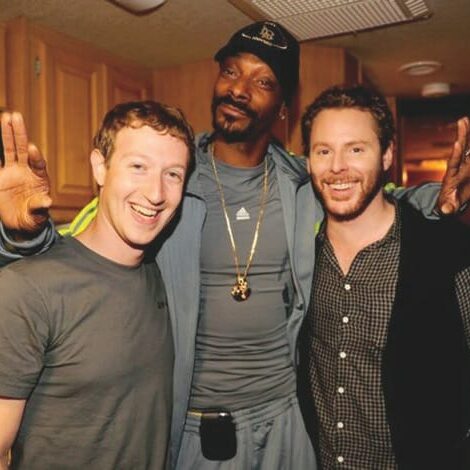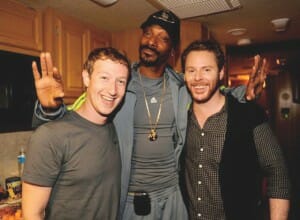
The “American Dream” keeps the poor chasing after a dream that was never meant to become a reality
If popular culture is any indication of legitimate public sentiment, the Occupy Wall Street protest is as transparent and hypocritical as the people attending them.
Let’s rewind to the Civil Rights Era: American pop culture was defined by iconic stars like John Lennon, Janis Joplin and Joan Baez, musicians who actually believed in promoting civil change. Novels like Harper Lee’s To Kill a Mockingbird, Thomas Pynchon’s The Crying of Lot 49, and Jack Kerouac’s On the Road were being published, showcasing a generational renovation of art, literary themes and social standards. Film’s like Arthur Penn’s Bonnie and Clyde, Dennis Hopper’s Easy Rider, and Alfred Hitchcock’s Psycho were pushing the limits of what American culture deemed to be publicly acceptable, not to mention morally appropriate.
Picture Jimi Hendrix performing “The Star Spangled Banner” on his Stratocaster at Woodstock. Much like his rendition of the anthem, America had become electrified, distorted and revitalized. It was a moment that marked a deliberate departure from the decaying bedrock on which American society and standards had been built.
Now fast-forward to contemporary American culture, specifically, Kanye West doing “his part” at an Occupy Wall Street rally. Yes kids, Kanye—decked out in a $30,000 designer ensemble with Pharaoh-esque chains hanging from his neck and half a million dollars in diamonds crusted over his bottom row of teeth. If Kanye West is to Occupy Wall Street what Bob Dylan was to the Civil Rights Movement, then popular culture has not simply experienced another departure in social standards, but an outright escape.
Where does this escape lead, you ask? Back to the glorious solace of American capitalism. The so-called “benefits” of this ideological construct have saturated American culture like Stoli Vodka has saturated Snooki’s stomach lining.
Since its inception, capitalism has manifested into consumer culture, and along the way, has seeped into every facet of contemporary society worldwide. Make no mistake about it; the literary genre of science fiction has died for a reason. We cannot envision the future (or for that matter, a different reality in the present) simply because the dialectical boxing match between different socio-political ideologies has reached unanimous decision. For all intents and purposes, we have hit an ideological stalemate where the only goal seems to be to make the most money.
The corresponding problem, of course, is that protests such as Occupy Wall Street seem hopeless in nature. This is not to say that I oppose producing a public voice in opposition to the status quo; rather, I only oppose a public voice that lacks unison, conviction and a concrete message. I mean, it’s not like Vladimir Lenin was secretly hanging with Tsar Nicholas II during the February Revolution in 1917. So when the people making the anti-Wall Street and anti-capitalist statements are tweeting on their iPhones, which are still linked to daddy’s corporate account at Goldman Sachs, the pervasive sense of hypocrisy bubbling underneath this movement is clearly anything but hidden. “We want change!” protestors argue. But for a considerable amount of the “99%”, this proposed change will ultimately deny them a chance at a $160,000 dollar university education and the postgraduate job prospects that generate the cushy lifestyles they see every day on Access Hollywood, and no one wants that.
Perhaps the most appropriate sense of this hypocrisy can be found in contemporary film and television. Films such as Oliver Stone’s Wall Street: Money Never Sleeps and David Fincher’s The Social Network depict 20-somethings desperately trying to make something bigger than themselves, but always on their own terms, and always with the same goal. Even Mark Zuckerberg, arguably one of the most creative and intelligent minds of our generation, only seems to strive for success in order to have business cards that read “I’m CEO, Bitch” and the ability to “buy Mt. Auburn Street, take the Phoenix Club, and turn it into my ping-pong room.”
Television offers the same character arc. Take Mad Men’s Donald Draper or Entourage’s Vincent Chase. Their jobs are creative in nature, but their goal is ultimately the same: make something from nothing, and make as much money as you can along the way. These characters and the decadent lifestyles of America’s first class they portray is simply Hollywood propaganda being funded by the real corporate rockstars in America. What’s the best way to keep capitalism cool? Get Jon Hamm to pitch it on cable TV. Hell, I’d buy tickets to my own funeral if that guy were selling them.
In the most realistic sense, Don Draper and the rest of his network friends are just turning the cog in the wheel of capitalism, keeping the access to the upper echelons of America’s workplace as restrictive as the collar in his firmly pressed suits. Put in as much sweat equity as you want, but know that that these days, the 1 per cent of the wealth in America is being held for those people with the requisite pedigrees, genius and financial connections.
You say you want a revolution? Well, you’re sure as hell not going to find the words to articulate it anywhere in Kanye’s My Beautiful Twisted Dark Fantasy. In fact, you’re going to find exactly the opposite message.
The “American Dream”? Take it for what it literally is—a dream, an illusion, a spectre. Consider the bullshit pop culture being relentlessly pumped out of Uncle Sam’s mouth as yet another tantalizing way for the rich to keep the poor chasing after a dream that capitalism ensured was never going to turn into a reality.
After all, a dream isn’t a dream when every person has the same vision.







